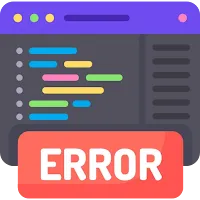Principal Parts of Verbs
Have you ever wondered how verbs transform to show different times and actions in your sentences? Understanding the "Principal Parts of Verbs" is key to mastering verb usage in the English language. This article is designed to help students, as well as educators and grammar enthusiasts, grasp the essential forms of verbs that shape our communication. With clear explanations and practical examples, we'll dive into the base form, present participle, past, and past participle of both regular and irregular verbs. Let's unlock the secrets of verbs and enhance your writing skills together!
The Principal Parts of Verbs
Every verb can take different forms to show when the verb’s action or state of being happened. The main forms of a verb are called its principal parts.
The principal parts of a verb are the base form, the present participle, the past, and the past participle. All other verb forms are formed from these principal parts.
In the following chart, all helping verbs are shown in brackets because present participles and past participles cannot be used as verbs unless accompanied by helping verbs.
| BASE FORM | PRESENT PARTICIPLE | PAST | PAST PARTICIPLE |
| trick | [is] tricking | tricked | [have] tricked |
| marry | [is] marrying | married | [have] married |
| go | [is] going | went | [have] gone |
Regular Verbs
All verbs form the present participle by adding –ing to the base form.
| BASE FORM | PRESENT PARTICIPLE |
| spray | [is] spraying |
| organize |
[is] organizing |
| swing |
[is] swinging |
A regular verb forms its past and past participle by adding –d or –ed to its base form.
| BASE FORM | PAST | PAST PARTICIPLE |
| prepare | prepared | [have] prepared |
| follow | followed | [have] followed |
REMINDER
Do not leave off the –d or –ed from the past or past participle forms of a regular verb.
NONSTANDARD
- Betty use to put her toys away when she was suppose to do so.
STANDARD
- Betty used to put her toys away when she was supposed to do so.
<->
Irregular Verbs
An irregular verb forms its past and past participle in some way other than by adding –d or –ed to its base form.
Irregular verbs form their past and past participle forms in one of the following ways:
- changing vowels
- changing vowels and consonants
- changing consonants
- making no change
| BASE FORM | PAST | PAST PARTICIPLE |
| win | won | [have] won [The i in win changes to o.] |
| build | built | [have] built [The d in build changes to t.] |
| do | did | [have] done [Vowels and consonants in do change.] |
| spread | spread | [have] spread [There is no change to spread.] |
REMINDER
VERB
- begin
- forsake
PRESENT PARTICIPLE
- [is] beginning
- [is] forsaking
Avoid the following common errors:
- Using the past form of an irregular verb with a helping verb
NONSTANDARD
Todd has broke your record.
STANDARD
Todd broke your record. - Using the past participle of a verb without a helping verb
NONSTANDARD
We seen the races between you.
STANDARD
We have seen the races between you. - Adding –d, –ed, or –t to the base form of an irregular verb
NONSTANDARD
Todd breaked your record.
STANDARD
Todd broke your record.
The Principal Parts of Verbs Quiz
For each of the following sentences, select the correct present participle, past, or past participle verb form above the verb in parentheses.
Conclusion
Grasping the principal parts of verbs is crucial for anyone aiming to improve their grammar and writing skills. By understanding the base form, present participle, past, and past participle, you'll have the tools to accurately convey time and action in your sentences. Whether you're a student eager to excel in your studies or a teacher seeking to enrich your grammar lessons, this guide provides a comprehensive overview. Remember, regular verbs follow simple rules, while irregular verbs require a bit more attention. Keep practicing, and soon these verb forms will become second nature, making your writing more precise and impactful.




